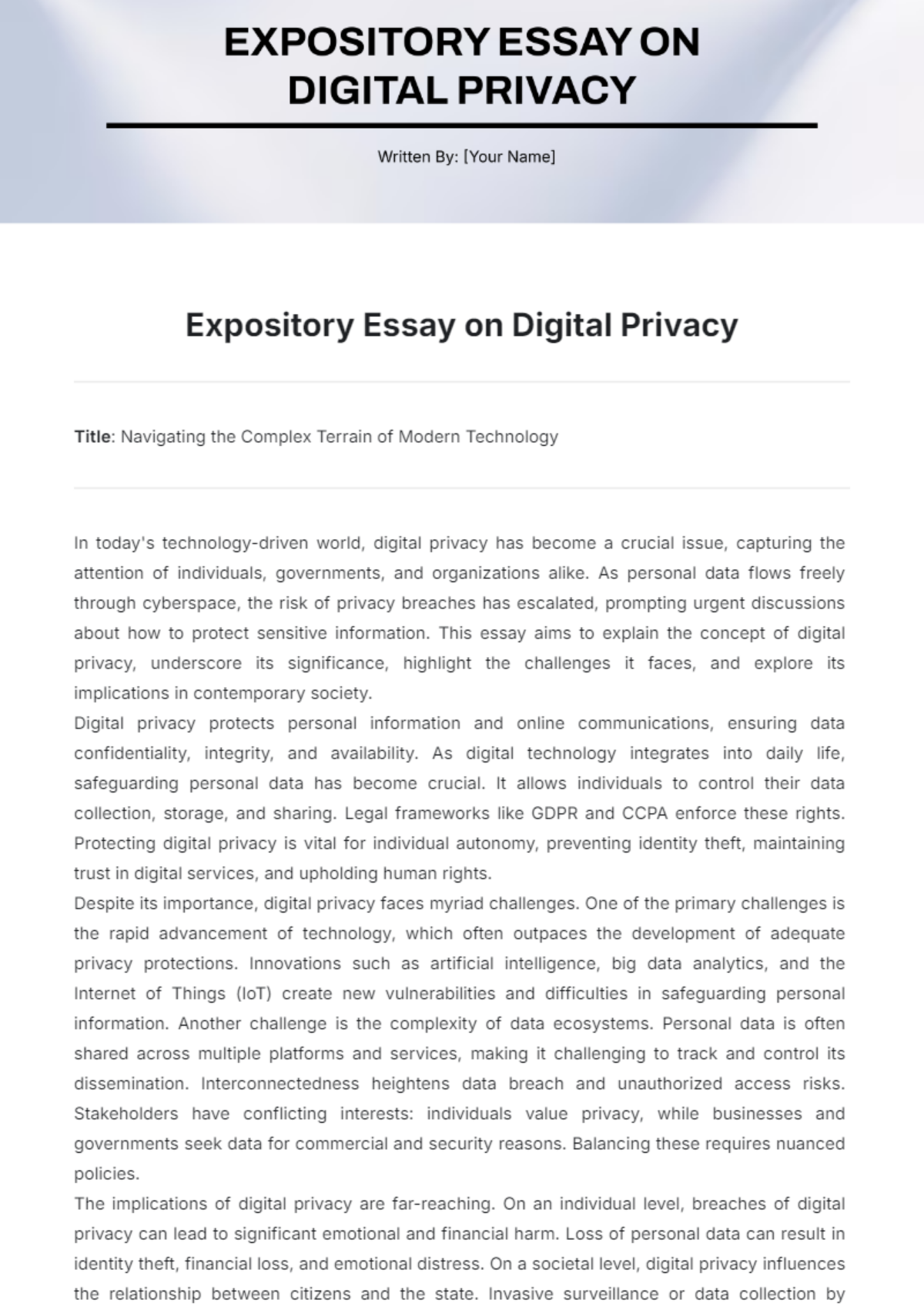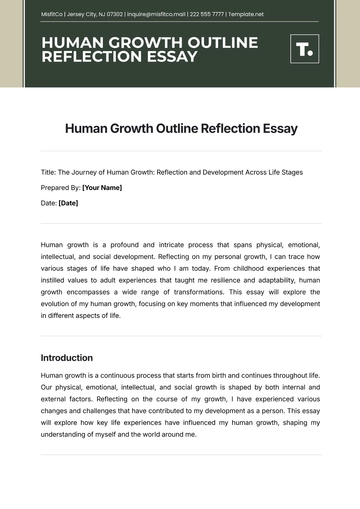Free Expository Essay on Digital Privacy

Title: Navigating the Complex Terrain of Modern Technology
In today's technology-driven world, digital privacy has become a crucial issue, capturing the attention of individuals, governments, and organizations alike. As personal data flows freely through cyberspace, the risk of privacy breaches has escalated, prompting urgent discussions about how to protect sensitive information. This essay aims to explain the concept of digital privacy, underscore its significance, highlight the challenges it faces, and explore its implications in contemporary society.
Digital privacy protects personal information and online communications, ensuring data confidentiality, integrity, and availability. As digital technology integrates into daily life, safeguarding personal data has become crucial. It allows individuals to control their data collection, storage, and sharing. Legal frameworks like GDPR and CCPA enforce these rights. Protecting digital privacy is vital for individual autonomy, preventing identity theft, maintaining trust in digital services, and upholding human rights.
Despite its importance, digital privacy faces myriad challenges. One of the primary challenges is the rapid advancement of technology, which often outpaces the development of adequate privacy protections. Innovations such as artificial intelligence, big data analytics, and the Internet of Things (IoT) create new vulnerabilities and difficulties in safeguarding personal information. Another challenge is the complexity of data ecosystems. Personal data is often shared across multiple platforms and services, making it challenging to track and control its dissemination. Interconnectedness heightens data breach and unauthorized access risks. Stakeholders have conflicting interests: individuals value privacy, while businesses and governments seek data for commercial and security reasons. Balancing these requires nuanced policies.
The implications of digital privacy are far-reaching. On an individual level, breaches of digital privacy can lead to significant emotional and financial harm. Loss of personal data can result in identity theft, financial loss, and emotional distress. On a societal level, digital privacy influences the relationship between citizens and the state. Invasive surveillance or data collection by governments can erode public trust and democratic values. Strong privacy protections boost public confidence in digital governance and encourage civic engagement. Economically, digital privacy impacts business and innovation. Companies that prioritize it can stand out, earning customer trust and loyalty, but implementing these measures can be costly, especially for small and medium-sized businesses.
In conclusion, digital privacy is a critical issue that demands attention and action in today's technology-driven world. Its significance lies in protecting individual autonomy, fostering trust, and upholding human rights. Despite the challenges posed by technological advancements and complex data ecosystems, it is imperative to strive for robust privacy protections. The implications of digital privacy extend beyond individual well-being, impacting societal trust and economic growth. As we navigate the digital age, prioritizing and addressing digital privacy concerns will be essential to ensure a secure and equitable digital future.
- 100% Customizable, free editor
- Access 1 Million+ Templates, photo’s & graphics
- Download or share as a template
- Click and replace photos, graphics, text, backgrounds
- Resize, crop, AI write & more
- Access advanced editor
This customizable and editable template from Template.net helps you tackle the pressing issue of digital privacy. Editable in our AI Editor Tool, it allows for seamless personalization while guiding you through the structure of a thoughtful expository essay on this modern topic.





























